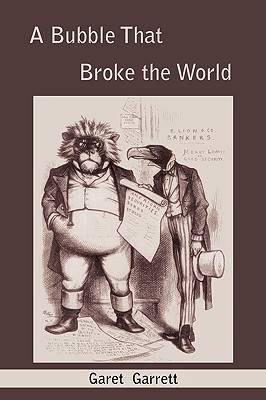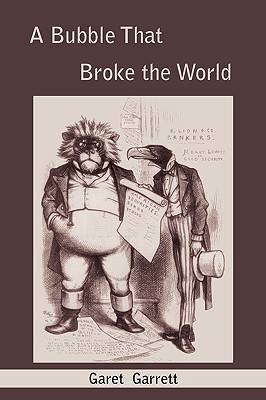
Bedankt voor het vertrouwen het afgelopen jaar! Om jou te bedanken bieden we GRATIS verzending (in België) aan op alles gedurende de hele maand januari.
- Afhalen na 1 uur in een winkel met voorraad
- In januari gratis thuislevering in België
- Ruim aanbod met 7 miljoen producten
Bedankt voor het vertrouwen het afgelopen jaar! Om jou te bedanken bieden we GRATIS verzending (in België) aan op alles gedurende de hele maand januari.
- Afhalen na 1 uur in een winkel met voorraad
- In januari gratis thuislevering in België
- Ruim aanbod met 7 miljoen producten
Zoeken
Omschrijving
2009 reprint of 1932 edition. Garet Garrett was born in 1878 in Illinois. By 1903, he had become a well known writer for the old New York Sun. In 1916, at the age of 38, Garrett became the executive editor of the New York Tribune, after having worked as a financial writer for The New York Times, The Saturday Evening Post, and The Wall Street Journal. From 1920 to 1933, his primary focus was on writing books. Between 1920 and 1932 Garrett wrote eight books, including A Bubble That Broke the World in 1932. He also wrote regular columns for several business and financial publications. Garett's political viewpoint overall, and the central theme throughout all his books, is libertarian or classical liberal. All his works exemplify the basic premise that a man is responsible for his own life, and that no man can expect a free ride off others, through forced income distribution schemes such as socialism and communism. As the 20th century progressed, he believed that Americans were signing away their birthright of freedom, through trading in their responsibilities of self-governance and self-responsibility, in return for more socialist measures such as FDR's New Deal expansion of government.
Specificaties
Betrokkenen
- Auteur(s):
- Uitgeverij:
Inhoud
- Aantal bladzijden:
- 190
- Taal:
- Engels
Eigenschappen
- Productcode (EAN):
- 9781578987634
- Verschijningsdatum:
- 11/08/2009
- Uitvoering:
- Paperback
- Formaat:
- Trade paperback (VS)
- Afmetingen:
- 152 mm x 229 mm
- Gewicht:
- 285 g

Alleen bij Standaard Boekhandel
+ 36 punten op je klantenkaart van Standaard Boekhandel
Beoordelingen
We publiceren alleen reviews die voldoen aan de voorwaarden voor reviews. Bekijk onze voorwaarden voor reviews.









